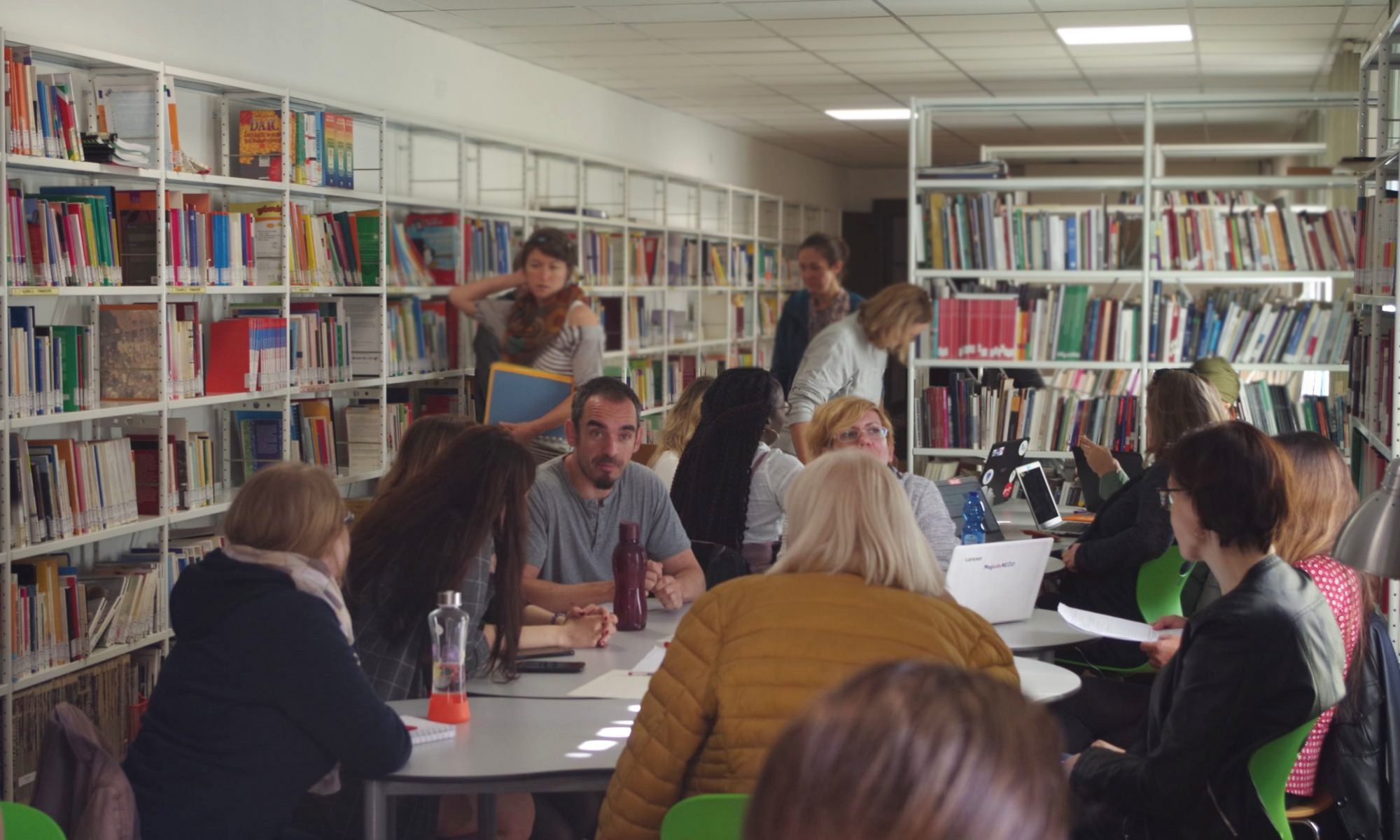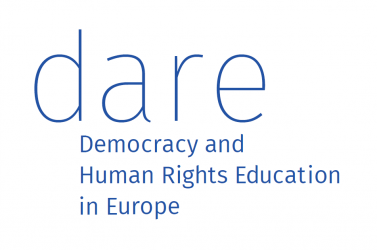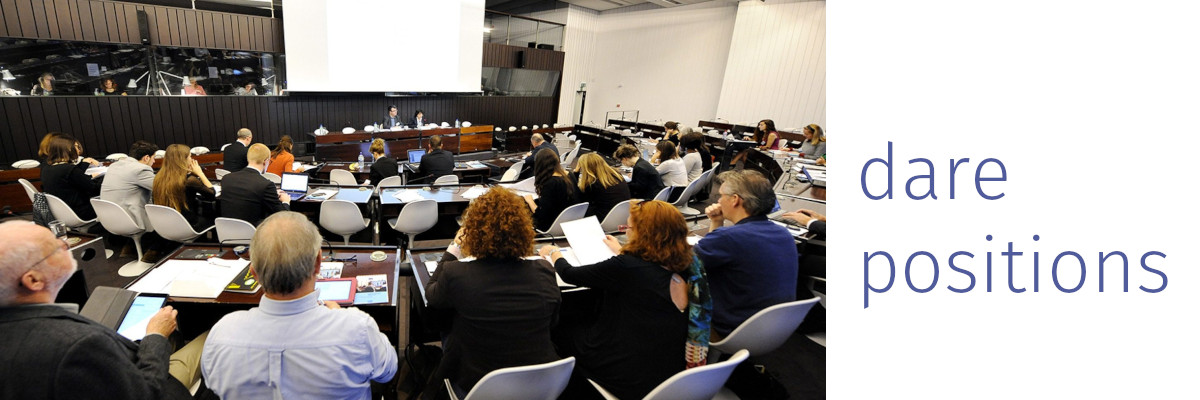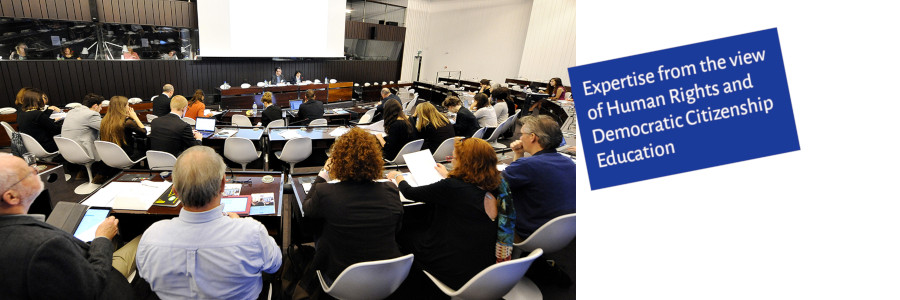Democratic Citizenship and Participation are the units comprising education and youth issues within the Directorate General II for Democracy in the Council of Europe (COE). Both play a substantial role for promoting the values of the Council of Europe among young people in its member states and neighboring countries. The fifty states to the European Cultural Convention, initiated by the Council of Europe, therefore focus their activities on enhancing young people’s commitment to human rights, the rule of law and democracy.
Continue reading “DARE statement on the draft contingency plan for the COE budget – May 2019”Democracy and Human Rights under pressure: the effects of right-wing populism, post-truth and radicalisation on Education for Democracy with young people
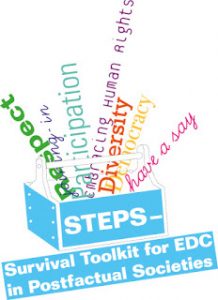
Recommendations based on the cooperation and analysis in the STEPS project.
In more and more countries in Europe basic democratic participation rights are rejected and questioned, large groups in societies, political parties and government promote authoritarian rule, right-wing populist parties and their leaders deny human rights to certain societal groups and are dismantling democracy, ordinary people and elected politicians spread hate on NGO´s and undermine democratic decision-making, mistrust is rising on the capacity of the political levels to solve societal challenges. As a consequence, there is a definite need to consider the role of Education for Democratic Citizenship and Human Rights (EDC/HRE) with young people. With the European project STEPS (E+ KA 1 mobility project), DARE members aim to identify the relationship between populism, post-truth, radicalisation and EDC/HRE as work with young people on the political dimension and on the pedagogical dimension of EDC in youth work.
We face a growing and interdependent variety of challenges of complex natures: economic growth with less jobs to offer, migration and flight, security issues and liberal freedom, global competition, climate change, distribution of wealth and solidarity, access to social rights, to name but a few. These challenges largely affect the basics of solidarity and democratic living together, they are contributing to a resurgence of nationalism in its current form of right-wing populism, which are increasing those challenges even more.
As educators working with young people in both non-formal and formal education, we face a cumulation of challenges which make the populist threat uneasy to react on:
- almost on all those levels where right-wing populists enter, a massive campaign against basic human rights for all, and against civil society organisations and youth work as provisions for democracy, begins
- the manifold challenging of basic commitments of HR policies and standards in Europe and beyond, manifesting itself in pressure on perceived ‘others’ in our societies, namely all people of different origins – on refugees and migrants
- a reflection among EDC practitioners to reach groups affected by extreme ideologies; which is as such reflecting the commitment of EDC in its inherent logic, but also questions the open and voluntary commitment of youth work provisions under a prevention perspective
- an ongoing discrediting and suspecting of EDC work from right-populist parties/actors as manipulating youth with liberal ideas
- an increase of European and national policies and programs to tackle hate-speech, radicalization , while long term oriented programs that support an infrastructural commitment to train and develop democratic capacities in our societies are lacking
- the fatal consequences of the neo-liberal paradigm that affects all aspects of life in our societies, resulting in a disillusionment with the promise of equality, with societal and political participation, an unhealthy focus on competition, even within the educational sectors, while being confronted with the fact that in more and more European countries traditional forms of work/industries get lost or face dramatic changes over the next decades
- an overstressing of competence acquisition and STEM focus in Formal Education, with EDC/HRE, youth work and especially the field of non-formal learning remaining in a secondary position. Resource oriented approaches and a strategic development of children and youth oriented learning spaces are lacking on a large scale in most countries as has been confirmed by the analysis of the STEPS project.
For a Strong Citizens Participation Perspective in the New Rights and Values Programme (2021 -2027) – Oct 2018
The DARE network acknowledges the European Commission’s initiative to provide the possibility for bigger impact of the current Europe for Citizens programme by aligning it with the content-wise related Equality and Rights and Daphne programmes under the proposed new Rights and Values Programme (2021-2027).
The suggested title Citizens Engagement and Participation should be the guiding idea for the design of the new programme. Its aim should clearly go beyond being an information tool for interested citizens and contribute concretely to support the democratic engagement of citizens and civil society by providing them adequate support.
Continue reading “For a Strong Citizens Participation Perspective in the New Rights and Values Programme (2021 -2027) – Oct 2018”Modernising Education in European Democracies – DARE communication to the European Parliament on modernisation of education – Nov 2017
- Aspects to be considered when thinking about modernisation of education in Europe
- DARE communication to the European Parliament’s rapporteur on the modernisation of education in the EU, MEP Łybacka
- 24.11.2017
- Download: PDF
Position on the Post-Paris-Process in Europe – Apr 2017
- Declaration on promoting citizenship and the common values of freedom, tolerance and non-discrimination through education (Paris Declaration)
- Referred Document: HTML
Continue reading “Position on the Post-Paris-Process in Europe – Apr 2017”
Points to be considered when revising the LLL key competences framework – May 2017
- Revision process of the European Key Competences for Lifelong Learning
- May 2017
Joint report on the implementation of the Strategic framework for European cooperation in Education and Training (ET 2020) – a non- formal Education for Democratic Citizenship perspective – Apr 2016
- ET2020 Strategic Framework for European Cooperation in Education and Training
- Referred Document: PDF
Keeping Human Rights at the heart of the EU agenda! Recommendations on the EU Action plan on Human Rights and Democracy (2015-2019)
- EU Action plan on Human Rights and Democracy (2015-2019)
Making the Case for European Civic Education – DARE talking points at the EP roundtable – Dec 2013
- DARE points reflecting the state of citizenship education in Europe at the End of European Year of Citizenship 2013
Opinion on EC communication “Re-Thinking Education” – Aug 2013
Let us be more ambitious!
DARE networks board proposes to critically investigate the European Commissions proposal on “Rethinking Education: investing in skills for better socio-economic outcomes” which was published in November 2012 by the European Commission [COM(2012) 669 final].
Continue reading “Opinion on EC communication “Re-Thinking Education” – Aug 2013″
